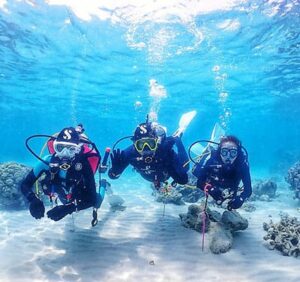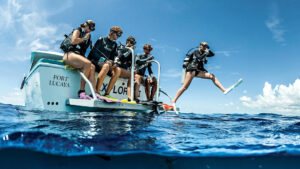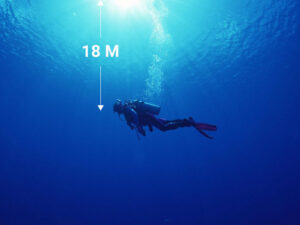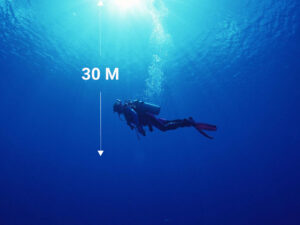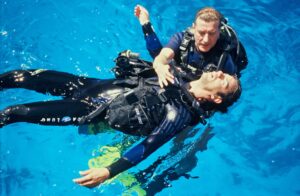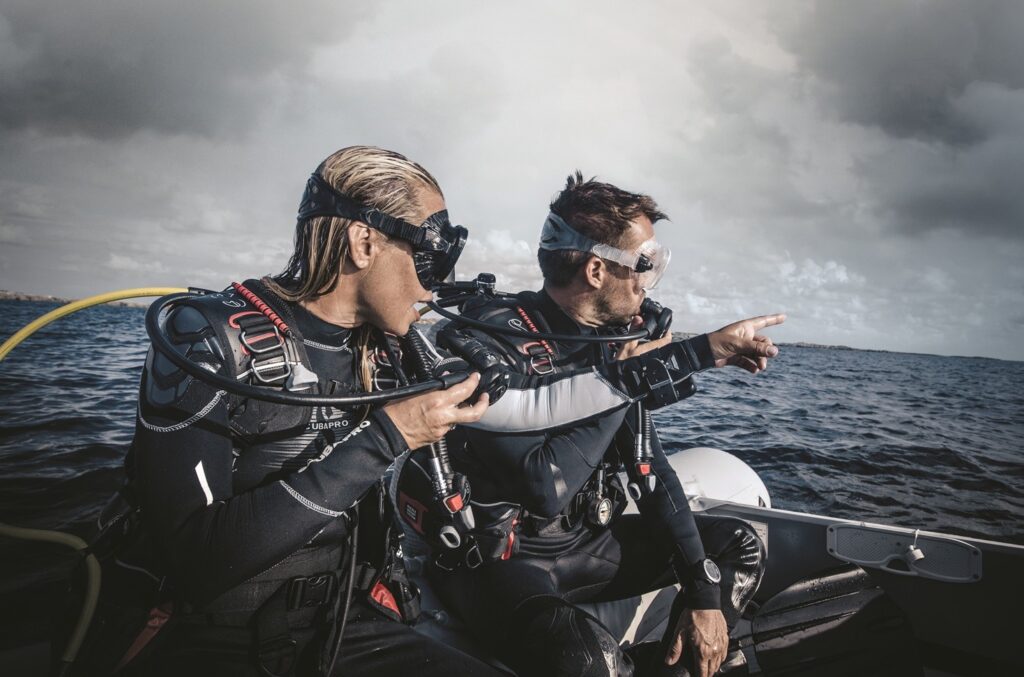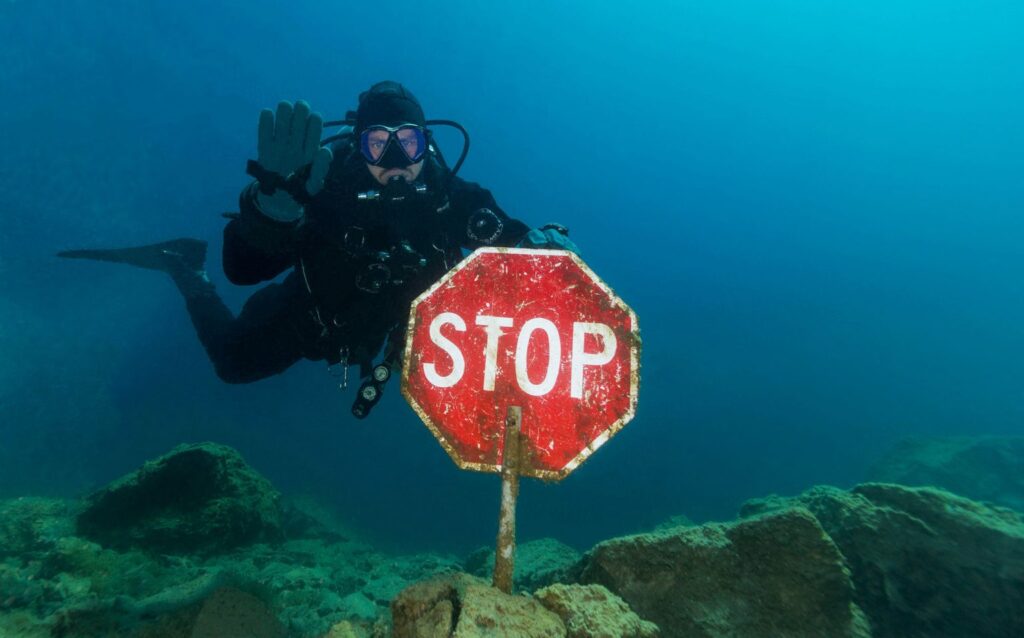Uncategorized
When we should not dive? Scuba diving before flight
Many of us may want to try diving for the first time, but many questions pass through our heads and we may not be sure if we should try this fun activity or not. In this article, we will show you what you should observe before and after diving in Dubai and what diseases should not even try this water sport.
Contents:
- General Notice for Scuba divers
- Scuba diving before flight
- Scuba diving for Pregnant
- Scuba diving for people with high blood pressure
- Scuba diving for someone with epilepsy
- Final Word
General Notice Before Scuba Diving
When we should not dive
There are times when diving can be perilous. Here are a few instances of why diving is not advised:
- If you are under the influence of drugs or alcohol: These substances can cause impairments in reflexes, judgment, and coordination, which raises the possibility of mishaps and injury.
- If you’re feeling very worn out or exhausted: Fatigue can slow down your reaction times and impair judgment, which raises the possibility of mishaps and injury.
- Should you suffer from a health issue that interferes with your diving: Medical disorders including epilepsy, lung illness, and heart disease might make diving accidents and injuries more likely.
- If you lack the necessary certification or training: Diving may be quite dangerous if one is not properly trained and certified. Before trying to dive, it’s crucial to have the right training and certification.
- If you are diving in adverse weather: Adverse weather conditions, such large waves, strong winds, and rain, can raise the risk of diving mishaps and injuries.
- If you are diving in uncharted territory: Diving in uncharted territory might be risky as you might not be aware of the local circumstances, such as tides, currents, and underwater dangers.
- If you dive in seas with low visibility: You may not be able to notice underwater dangers including rocks, reefs, and other divers, which increases your risk of accidents and injury.
Scuba Diving Before Flight
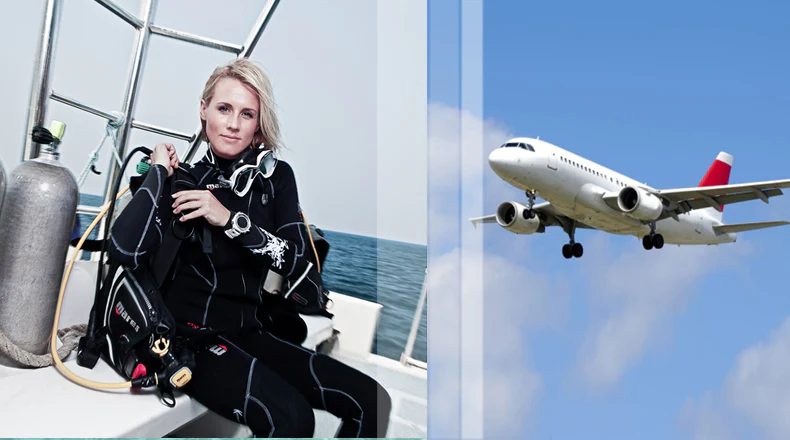
Decompression sickness (DCS)—also referred to as “the bends”—can put your health and safety at risk if you dive before an aircraft. As a result of sudden pressure fluctuations during the ascent after diving, DCS is caused by nitrogen bubbles forming in the blood. These bubbles have the potential to obstruct blood flow and harm tissue, which can lead to a variety of symptoms, including joint discomfort, paralysis, and even death.
A waiting interval between your previous dive and flying is advised to lower the risk of DCS, following advice from organizations like the Professional Association of Diving Instructors (PADI) and the Divers Alert Network (DAN). The suggested duration and depth of the dive determine the recommended time.
How many hours before the flight should we not dive?
DAN advises recreational divers should wait at least 12 hours after a single no-decompression dive before flying. An interval of 24 hours above the surface is recommended for several dives or dives needing decompression breaks. In general, PADI advises delaying for 12–18 hours following a single dive without decompression and for 18–24 hours following many dives or dives with decompression.
Technical or deeper dives: Longer surface intervals before flying can be necessary for certain dives. According to DAN guidelines, one should wait for a minimum of 24 hours and a maximum of 48 hours following a dive to a depth of 10-71 feet (21 meters) or deeper.
Regarding repeating dives: It’s important to take into account the amount of time that will pass between your last dive and the start of your return flight if you intend to dive more than once while here.
It’s critical to remember that a lot of factors, such as individual susceptibility, number of dives, depth and duration of dives, and physical fitness, might affect the risk of DCS. It is always advised to speak with a medical expert or a dive physician if you have specific worries regarding your post-dive travel arrangements or health.
What will happen if i dive before flight?
Pre-flight diving can lead to decompression sickness (DCS), sometimes referred to as “the bends.” This syndrome arises when the body absorbs extra nitrogen under pressure during a dive, causing nitrogen bubbles to accumulate. As the pressure falls during ascent, the bubbles fail to dissolve and instead expand.
The following are possible mild to severe DCS symptoms:
Symptoms of DCS range from mild to severe and can include:
-
- Joint pain (often referred to as “bends”)
- Fatigue
- Dizziness or vertigo
- Nausea or vomiting
- Rash or itching
- Headache
- Difficulty breathing
- Paralysis or weakness in limbs or extremities
Scuba Diving for pregnant
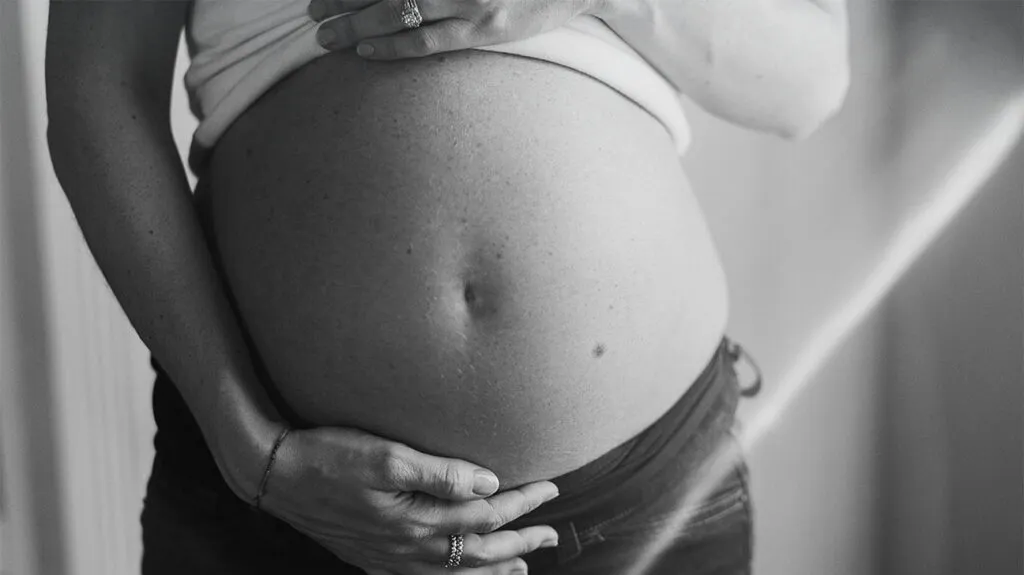
Can pregnant do scuba diving
Scuba diving is typically not recommended for pregnant women, especially in the second and third trimesters.
Enhanced Risk of Decompression Sickness: The possibility of decompression sickness (DCS) raises questions regarding how diving may affect the developing embryo. This illness develops when the quick pressure fluctuations that happen during the ascent after diving cause nitrogen bubbles to accumulate in the blood. It is possible for nitrogen bubbles to get through the placental barrier and injure the growing baby.
Lowered Availability of Oxygen: Pregnant women’s bodies need more oxygen when submerged, which may have an effect on the developing fetus.
Enhanced Risk of Gas Embolism: Hormonal changes during pregnancy may raise the risk of gas embolism, a condition in which air bubbles obstruct blood arteries. This danger may be substantially increased by scuba diving.
Possible Impact on Fetal Development: Although the consequences of diving on pregnancy have received little investigation, little is known about how pressure shifts, low oxygen levels, and gas bubbles affect fetal development.
Physical Discomfort and Fatigue: A woman’s body experiences notable changes throughout her pregnancy, such as a rise in weight and a change in center of gravity. Diving becomes more difficult as a result of these changes, which might cause physical discomfort and weariness.
Scuba Diving for people with Blood pressure
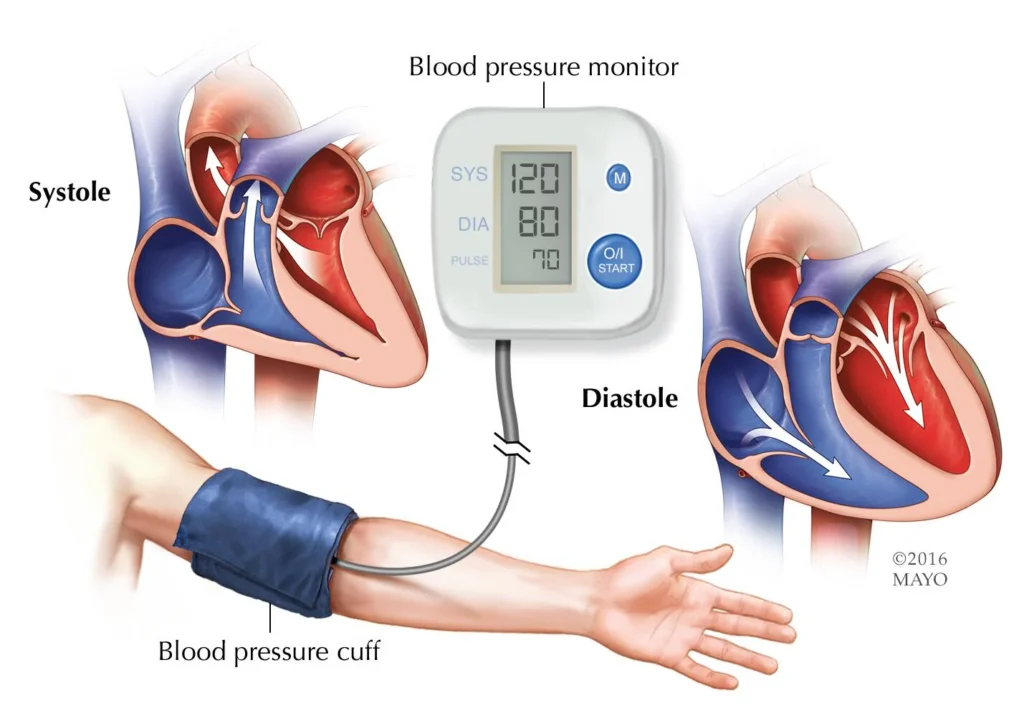
Can people with high blood pressure do scuba diving?
People with high blood pressure can engage in scuba diving, but certain precautions and considerations should be taken into account. It’s essential for individuals with hypertension to consult with their healthcare provider before attempting scuba diving.
It’s crucial to remember that every person’s health is unique, therefore choosing to go scuba diving should only be done after consulting with a trained medical expert who is aware of the particular requirements and hazards related to hypertension. Always put safety first, and consult a medical professional or a diving professional if you have any questions or concerns.
Scuba diving for someone with epilepsy

Can a person with epilepsy do scuba diving?
Depending on the kind and severity of epilepsy, the answer to this question might be somewhat complicated. It’s crucial to remember that safety is the top priority while diving, and people with epilepsy should carefully consider their unique situation and consult with medical specialists who specialize in diving medicine before attempting to dive. Here are a few broad things to think about:
Control of Seizures: Divers suffering with epilepsy must make sure that their condition is adequately managed and that they take their medications as prescribed. Depending on regional laws or the directives of diving organizations, seizure-free intervals could be necessary prior to and following diving.
Dive friend: People with epilepsy should always dive with a friend who understands their condition and knows what to do in the event of a seizure.
Certification: Before beginning scuba diving training and certification, individuals with epilepsy may need to receive a medical clearance from a physician skilled in diving medicine. It’s crucial to abide by the medical condition criteria provided by diving organizations such as PADI and DAN.
Risk Assessment: One major worry is the possibility of having a seizure underwater. Diving-related seizures can be quite dangerous since they can result in injuries such as pulmonary barotrauma, drowning, or other traumas.
Environment and Stress: For certain epileptics, the cold, fluctuations in water pressure, and stress can all possibly cause seizures. Divers need to be mindful of these triggers and adopt the necessary safety measures.
Local Rules and Regulations: National and international diving organizations may have different rules and regulations pertaining to scuba diving with epilepsy. It’s critical to understand these rules and regulations and to abide by them.
Alternatives: Snorkeling and other lower-risk water sports can be a better fit for certain epileptics than scuba diving.
Final word
You should know many things to take care of you before settling into diving, which we have explained in detail there, for example, pregnant women and those who are ill. As a professional dive center, we pay attention to many things before starting a dive. You have to fill out a medical form, our team values your health and we don’t think about our financial interests, so our instructors are happy to advise and guide you.

